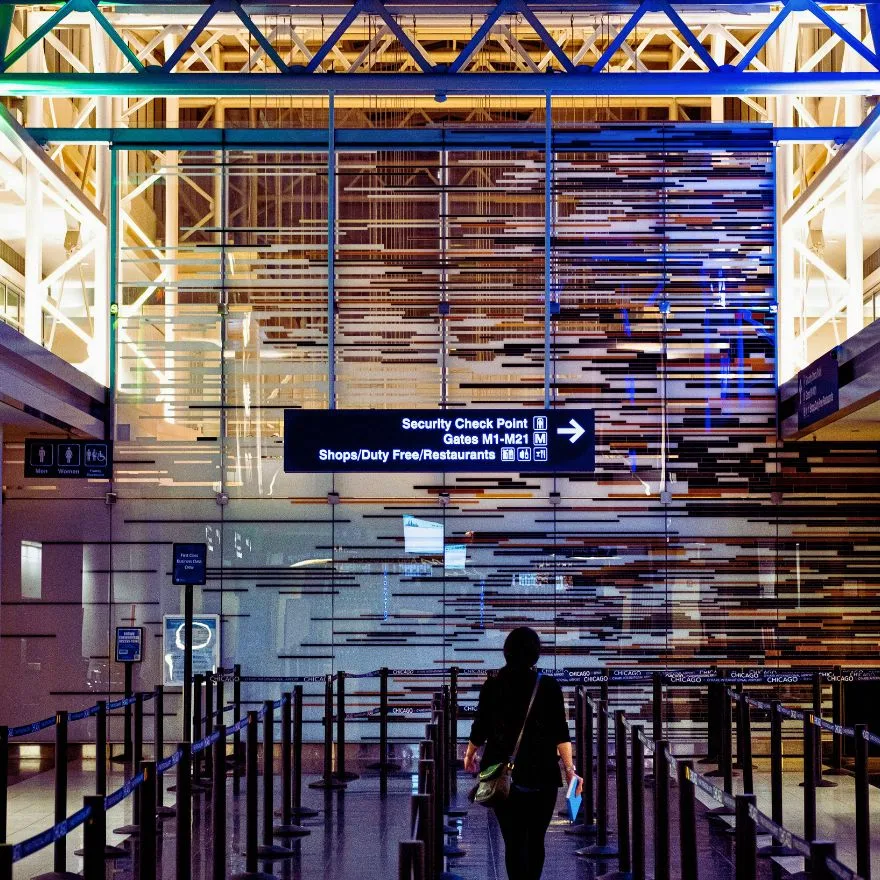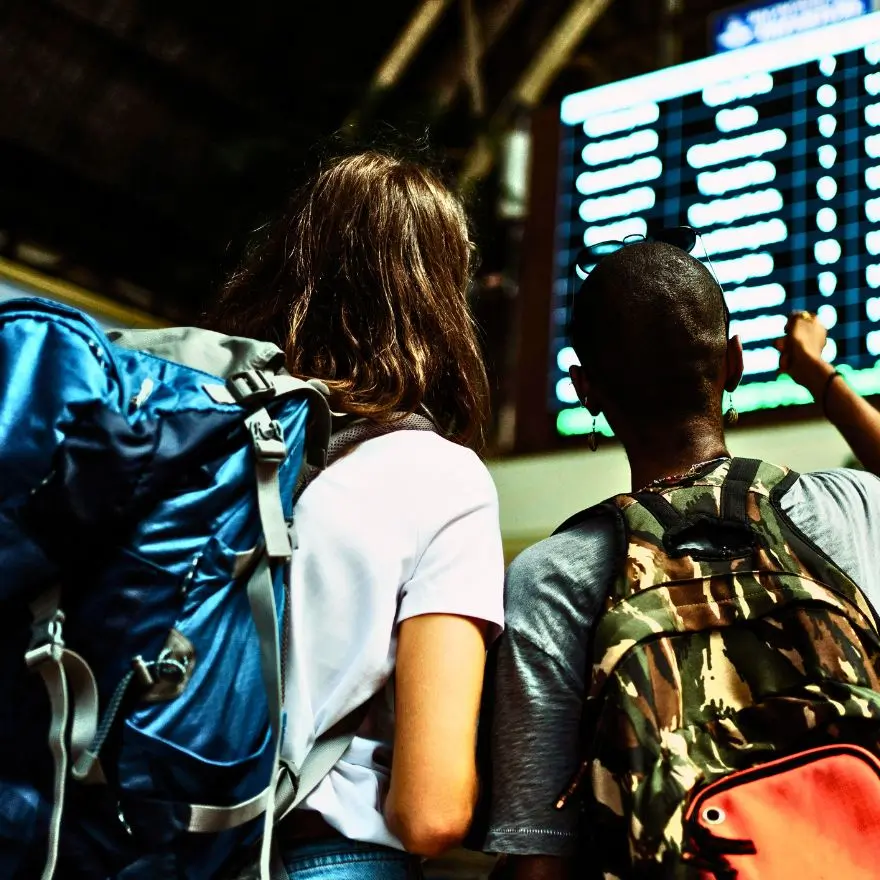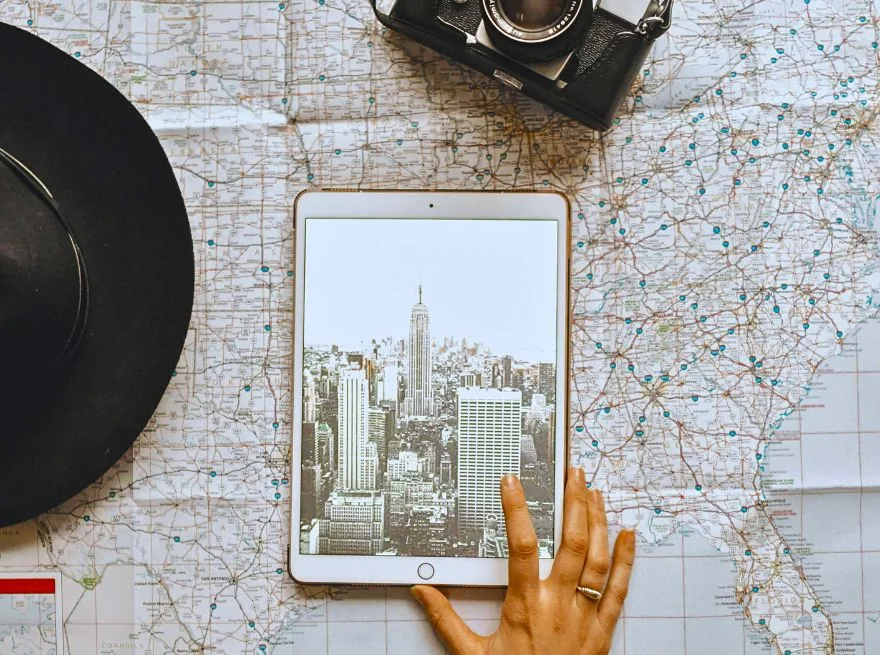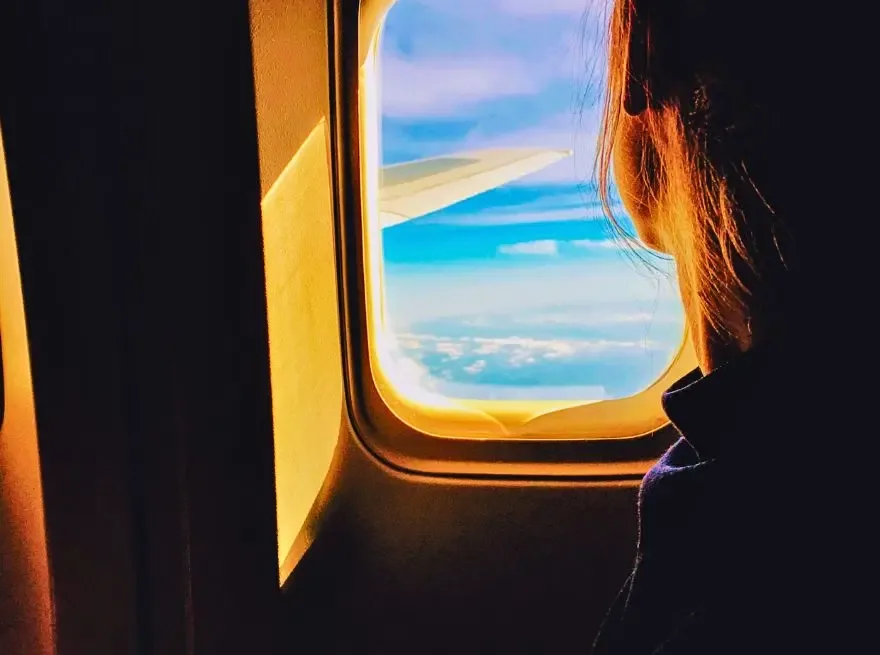
There I was, sitting on the cold airport floor at 2 AM, my flight delayed for the third time, surrounded by frustrated travelers hunched over their phones, their sighs echoing through the terminal.
The gate agent had just announced another two-hour wait, and I felt that familiar knot of anxiety tightening in my chest. My carefully planned itinerary was unraveling, my connection would be missed, and my phone was buzzing with notifications that seemed to scream at me about everything I should be doing instead of sitting here—stuck.
But then something shifted. Maybe it was exhaustion, or perhaps it was the memory of a Buddhist monk I’d met in Kyoto who spoke about the spaces between things being as important as the things themselves. I looked around at my fellow travelers, all of us trapped in this liminal space, and I wondered: what if this wasn’t a delay at all? What if this was exactly where we needed to be?
That night marked the beginning of my journey toward embracing delays not as interruptions to my life, but as unexpected invitations to pause, reflect, and reconnect with the present moment. It’s a practice that has transformed how I move through the world, and today, I want to share that transformation with you.
The Tyranny of the Schedule: Why We Resist Waiting
We live in a culture obsessed with efficiency. Our calendars are color-coded, our minutes are optimized, and our worth often feels measured by how much we accomplish in a day.
We’ve been conditioned to see waiting as wasted time, travel delays as personal affronts to our productivity, and any deviation from our plans as a problem to be solved or endured.
I’ve stood in train stations from Mumbai to Amsterdam, watched travelers rage at departure boards, seen grown adults reduced to tears by a three-hour flight delay. And I understand it. I’ve been that person.
But here’s what I’ve learned through years of wandering: the universe doesn’t care about our schedules. Life unfolds according to its own rhythm, not our carefully crafted itineraries.
When we resist what is, we suffer. When we fight against time, we lose twice.
The question isn’t whether delays will happen—they will.
The question is: how will we meet them?
Reframing the Delay: From Problem to Portal
The first step in transforming your relationship with delays is changing the story you tell yourself about them.
Instead of seeing a delay as a problem, what if you viewed it as a portal—a threshold between what was and what will be? A sacred pause in the relentless forward motion of life.
What if this delay isn’t an interruption, but an initiation?
This isn’t about toxic positivity or pretending that delays don’t create real challenges. It’s about choosing how to meet the moment.
You can spend the next two hours (or six, or ten) trapped in mental warfare with reality—or you can explore what this unexpected gift of time might offer.
When my train from Prague to Vienna was delayed for four hours, frustration bubbled up. But then I remembered: I had nowhere to be except here. So I walked into the old town I’d only intended to pass through.
I found a café where locals played chess. I ordered something I couldn’t pronounce. I met an elderly woman who told me stories of surviving the Velvet Revolution.
When my train finally arrived, I was a different person than the one who had stepped off.
That delay gave me something no schedule could have planned: a reminder that the best moments of travel often exist in the unscheduled spaces.
The Art of Presence in Waiting
Waiting, when approached with intention, becomes a meditation.
Here’s a mindful travel practice I’ve developed over countless hours spent in terminals, stations, and delayed departures:
- Acknowledge the emotion. If you’re frustrated, angry, or anxious—name it. Feel it in your body without judgment.
- Breathe deeply. Not shallow, stressed breaths—but full, belly-deep breaths that tell your nervous system you’re safe.
- Expand awareness. Notice what you see, hear, and feel around you. The hum of fluorescent lights. The smell of coffee. The rhythm of humanity moving nearby.
This simple practice creates space—between stimulus and response, between circumstance and suffering.
Space where something new can emerge.
Finding Connection in Shared Experience
One of the most beautiful gifts of travel delays is the unexpected community they create.
I remember a six-hour delay in the Delhi airport during monsoon season. Initially, everyone was locked in their own bubble of frustration.
But then someone started a conversation. Then another. Soon, our corner of the terminal had become a gathering place.
We shared snacks, phone chargers, travel stories, laughter.
A businessman from Singapore taught me a card game.
A backpacker from Brazil offered coconut water.
An elderly couple from Kerala spoke lovingly of their granddaughter’s wedding.
By the time our flight was called, we’d exchanged contacts and taken group photos. The delay gave us something deeper than an on-time departure—it gave us each other.
Sometimes all it takes is one smile, one honest “Well, this wasn’t what I planned either,” to turn isolation into connection.
The Delay as Creative Incubator
Some of my best writing has happened in airports. Some of my deepest realizations have come while staring out a train window that refuses to move.
Delays suspend us in time. They loosen the grip of routine and invite creativity to slip through the cracks.
I carry a journal always, and some of my most treasured entries are dated like this:
“Somewhere between Frankfurt and Munich, 3-hour delay.”
“Heathrow Terminal 5, 11 PM, going nowhere.”
If you’re not a writer, try sketching, people-watching, learning a new phrase, or simply listening—to the world, to your thoughts.
Delays are where inspiration often hides, waiting for you to notice.
Discovering the Unexpected: The Joy of Slow Travel
I’ve found some of my favorite places because of delays. Museums near forgotten stations. Parks no guidebook mentions. Bookshops that became sanctuaries.
When my bus broke down in rural Indonesia, I spent the afternoon in a village that sees perhaps three tourists a year.
Children practiced English with me. I ate fresh mangosteen. I learned, badly but joyfully, how to weave palm fronds into baskets.
None of it was on my itinerary. All of it became the heart of my trip.
This is the essence of slow travel—not racing toward what’s next, but finding beauty in where you unexpectedly are.
The Spiritual Dimension of Waiting
Many wisdom traditions speak of sacred pauses.
The Japanese concept of ma, the meaningful interval.
The Christian practice of Sabbath.
The Buddhist teaching of being fully present with what is.
When we embrace travel delays as spiritual pauses, we practice acceptance of reality as it is—not as we wish it to be.
Like water flowing around obstacles, we learn flexibility and grace.
There’s peace in knowing that some things are simply beyond control. The flight is delayed. The train stands still. Yet within stillness, something sacred stirs.
Practical Strategies for Embracing the Wait
Sacred doesn’t mean impractical. Here are a few ways to make waiting work for you:
- Create a Delay Kit: A journal, book, headphones, tea bag, charger, and card deck—ready for unplanned pauses.
- Set a Comfort Threshold: Decide when to explore instead of sitting idle. Over two hours? Step outside. Find a real meal.
- Practice Digital Sabbath: Disconnect. Let the world spin without your constant input.
- Move Your Body: Stretch, walk, or do gentle exercise. Movement resets the mind.
- Document the Experience: Journal, photograph, record voice notes—your future self will thank you.
When Delays Reveal What Matters
Delays strip travel down to its essence.
They reveal what truly matters: compassion, patience, and connection.
I’ve seen strangers share food, help elders, soothe crying children—all in the liminal space between departure and arrival.
Delays remind us that the journey matters more than the itinerary—not as a cliché, but as lived truth.
Bringing the Wisdom Home
Travel teaches what life mirrors.
What is traffic but a delay? What is waiting for results, a reply, or a dream to unfold? Life itself is a series of pauses between plans.
When we learn to meet travel delays with grace, we’re training for every delay that follows—every season of uncertainty that shapes us into more patient, open beings.
The Invitation
The next time you face a delay, before frustration takes hold—pause.
Breathe.
Look around.
Ask yourself: what if this moment isn’t happening to me, but for me?
You might discover that the delay was the destination all along.
Your flight will take off eventually. Your train will move again. But this exact constellation of people, sounds, and air will never exist again.
Be present for it.
Because the journey to Inner Soar isn’t only about the places we reach—it’s about how we meet the unplanned, the delayed, the beautifully disrupted.
Every delay is an invitation.
The only question is whether you’ll accept it.





